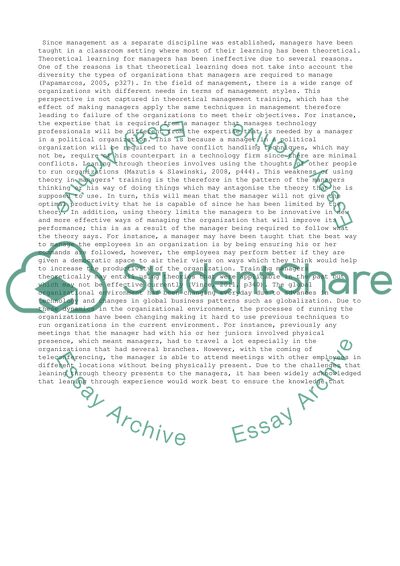Cite this document
(“Managers learn better through experience. Theory has nothing to offer Essay - 2”, n.d.)
Managers learn better through experience. Theory has nothing to offer Essay - 2. Retrieved from https://studentshare.org/management/1498008-managers-learn-better-through-experience-theory
Managers learn better through experience. Theory has nothing to offer Essay - 2. Retrieved from https://studentshare.org/management/1498008-managers-learn-better-through-experience-theory
(Managers Learn Better through Experience. Theory Has Nothing to Offer Essay - 2)
Managers Learn Better through Experience. Theory Has Nothing to Offer Essay - 2. https://studentshare.org/management/1498008-managers-learn-better-through-experience-theory.
Managers Learn Better through Experience. Theory Has Nothing to Offer Essay - 2. https://studentshare.org/management/1498008-managers-learn-better-through-experience-theory.
“Managers Learn Better through Experience. Theory Has Nothing to Offer Essay - 2”, n.d. https://studentshare.org/management/1498008-managers-learn-better-through-experience-theory.


